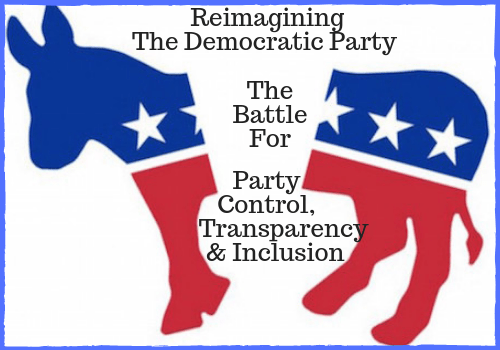Inside the sweltering sanctuary of the First Unitarian Congregational Society church, several of the candidates vying to represent the newly reconfigured 10th Congressional District gathered for only the second time Monday to discuss issues including affordable housing, LGBTQ rights and infrastructure.
Hosting the candidates’ forum were several Brooklyn progressive political clubs including the New Kings Democrats, Lambda Independent Democrats, South Central Brooklyn United for Progress, the Brooklyn Young Democrats and Equality New York. The church where the event was held, located in Brooklyn Heights, sits at the center of the new district, which covers lower Manhattan and parts of Brownstone Brooklyn.
Gotham Gazette Executive Editor Ben Max moderated the event. Most of the 15 candidates contending for the open seat were on hand including well-known politicos like former Mayor Bill de Blasio, U.S. Rep. Mondaire Jones (D–Rockland, Westchester Counties), Assemblymembers Yuh-Line Niou (D–Manhattan) and Jo Anne Simon (D–Brooklyn), City Councilmember Carlina Rivera (D–Manhattan) and lead counsel in the first impeachment of former President Donald Trump Dan Goldman. Plus, some lesser known names like consumer protection advocate Brian Robinson, data scientist and perennial candidate Quanda Francis and non-profit founder Jimmy Li.
The candidates were divided into two groups, each getting roughly an hour to answer Max’s questions on a variety of topics.
Like in the first candidates’ forum in late May, addressing the city’s ongoing housing crisis seemed top-of-mind for many of the candidates. In responding to Max’s question on three pieces of legislation each candidate would introduce or support in Congress, Niou said she supports a bill from U.S. Rep. Nydia Valazquez (D–Manhattan, Brooklyn, Queens) that would fully fund the New York City Housing Authority (NYCHA).
“I truly believe that the only truly affordable housing that we have actually is NYCHA, is public housing,” Niou said. “It’s 30 percent of somebody and you basically are paying whatever that 30 percent is and that’s truly affordable housing. Our federal government has divested for decades. I think it’s really important for us to make sure that we actually have an investment. We never have fully funded public housing and we need more public housing rather than less.”
Rivera said the way to build more truly affordable housing specifically in Brooklyn, is to have “federal funding linked to actually building enough supply to meet our desperate demand.” Other solutions to the housing crisis, she added, include reevaluating zoning rules in the city and around the country, funding more supportive housing for individuals experiencing homelessness and providing wrap-around services.
The council member voiced support for the controversial Haven Green senior affordable housing project, proposed to be built on the current site of the privately-owned public park known as the Elizabeth Street Garden in Little Italy.
“There is an example in Haven Green on Elizabeth Street, where they’re creating affordable housing with a nonprofit developer that is specifically there to ensure that people who are formerly homeless and people who need homes have the care that they need,” Rivera said. “And we have to ensure that we are making bold choices and building housing in transit rich areas and funding it fully.”
But Niou said she opposes the development because she doesn’t think the community should be losing green space to build housing, especially when there was an alternative site proposed for it.
Jones also voiced support for the project in answering a separate question about what levers can be pulled at the federal level to build more affordable housing specifically for the LGBTQ plus community. Jones said the best way to ensure more housing is built specifically for LGBTQ plus individuals is to put clear restrictions on federal funding allocations for what specific kinds of housing it can be used for.
“This is a question of whether the federal government will, using an equity lens, make sure that funds it allocates to cities and other governments is doing so with precision and with a mindfulness towards making sure that certain of those funds are allocated for senior housing, for the LGBTQ plus community and just housing for the community generally,” Jones said.
On the other side of the East River, Jones said there are major infrastructure issues that need to be addressed – like repairing or “reimagining” the Brooklyn-Queens Expressway and potentially restarting a stalled Brooklyn-Queens project to build a streetcar on the Brooklyn-Queens waterfront.
De Blasio expressed support for a plan proposed last year – the last of his mayoralty – to fix the BQE, but said his successor Mayor Eric Adams’ isn’t doing enough to keep that plan on track. The plan involves reducing the amount of traffic and lanes on the overcrowded highway, so that the city can make the necessary repairs and switch freight transportation to smaller energy efficient vehicles, railways and boats – which would reduce congestion and pollution from the BQE.
The former mayor said he wasn’t able to get this project off the ground during his eight-year tenure because the first iteration of the plan was “a mistake.”
“I understood it was offered by the Department of Transportation (DOT), I was sympathetic personally to its goals,” de Blasio said. “But when we heard back from the community, it was quite clear that it wasn’t the best plan. And by the way, other folks said ‘you’re missing how much bigger we could go on a solution.’ And I agreed with them. And we found a way to address the short term need and the safety needs.”
The primary is slated for Aug. 23. Early voting is from Aug. 13-21.










